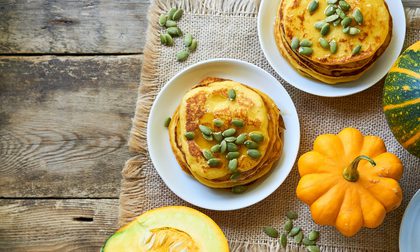Childhood is a time of rapid growth and development and as a result, children have higher energy and nutrient requirements compared to adults. It is therefore important that they are offered a diet that provides adequate energy and nutrients for their needs. As we all know, many children have a strong dislike for healthy options so it’s up to parents and caregivers to get creative and try and sneak in highly nutritious food options where possible. Nutritional needs vary amongst children as each child is unique, but there are a few basic guidelines to follow.
On This Page
Childhood Dietary Requirements
During childhood, protein, carbohydrates and healthy fats are needed to support childrens growth. There is only a limited amount of food that your child can eat in a day, so it makes sense to spend their calorie budget wisely by providing food with the greatest variety of nutrients. The most nutrient dense foods include salmon, kale, egg yolks, garlic and blueberries, to name just a few.
For the average healthy child, meals should be offered 4-5 times per day with additional nutritious snacks offered 1-2 times per day. The number of mealtimes depends on the childs eating habits. On average, children need approximately 2-3 servings of fruit and vegetables, 6-11 servings of carbohydrates and grains, 2 servings of proteins and 2-3 servings of dairy per day. Serving size depends on the developmental stage and age of the child. Make sure to include all five food groups in your childs daily meals. The more variety a meal has the more nutrients your child will receive.
Food Groups
- Protein: Ground meat, eggs, hummus, plain yoghurt, tofu, lentils, snapper, mahi-mahi, turkey, chicken, nut butter, mozzarella, gouda or cottage cheese.
- Fats: Oil-based dressings, salmon, sardines, guacamole or avocado.
- Drinks: Milk or milk alternatives, water or fruit-infused water.
- Fruit and vegetables: Sweet potatoes, peas, carrots, zucchini, pineapple, berries, bananas and apples are some of the most nutritious options.
- Starch: Whole grains, wheat bread, beans, bran, bulgur wheat, wholegrain pasta, quinoa, oatmeal or peas.
Fibre is also an essential part of a healthy childhood diet as it will help prevent digestion and constipation issues. Ensure your child enjoys fruit and vegetables every day as they are a great source of fibre.
Encouraging your child to drink plenty of water is also important in order to prevent dehydration and to sustain a good functioning body. Fruit juices, fizzy drinks, sweetened iced tea and flavoured water are high-calorie drinks that are one of the contributing factors to early childhood weight gain and obesity around the world.

Vitamins
Vitamins and minerals are necessary for a healthy functioning gut, brain and immune system. Try to include a variety of food sources of vitamins and minerals in your childs diet such as:
- Vitamin C: Citrus fruit, dark green vegetables, cantaloupe, peppers, tomatoes and guavas.
- Vitamin A: Orange and yellow fruits, liver, eggs, butter and dairy milk.
- Iron: Liver, poultry, chicken, red meat, fish, eggs and whole-grain bread.
- Iodine: Seafood and iodized salt.
- Zinc: Whole grain cereals, legumes, meat, eggs, seeds, nuts and shellfish.
- Calcium: Sardines, dairy, collard greens and kale.
Helpful Tip
Cayman has plenty of dietitians and nutritionists who can provide advice on how to improve your family’s diet. Scroll to the bottom of this article for a list.
Make the Health Food Shift!
Try to make small changes to your child's diet here and there and before you know it, you'll be making a big difference to the amount of nutrient-dense food your child is consuming.
- Replace fruit products with added sugar with fresh fruit slices.
- Swap processed meats like sausages and ham with slices of chicken, ground meat or chickpea falafels.
- Replace deep-fried chips with oven-roasted vegetables.
- Swap cereals with added sugar for oats, cream of wheat or wheat flakes.
- Replace white pasta and rice with wholegrain or lentil versions.
- Instead of sweets or salty snacks, provide sliced fruit and vegetables with a nut butter dip.
- Choose oat-based crackers instead of rice-based crackers which are heavier in metals.
- Swap sugary drinks with fruit infused water (where you add fruit slices like lime, kiwi, oranges or strawberries to the water).
Related Articles
Picky Eaters

We all know mealtimes can be a time-consuming battle when your child is a picky eater! Here are some tips on how to include vegetables into your childs diet without them even knowing.
- Add grated carrots, finely cut green and red peppers to spaghetti bolognese.
- Add grated carrot or zucchini to your breakfast muffins.
- Add butternut squash, cauliflower or broccoli to mac and cheese.
- Offer homemade, oven cooked hamburger patties that have blended cauliflower, spinach or broccoli in them.
- Make a vegetable juice popsicle with cucumber, watermelon, lime, spinach and pineapple.
- Chicken, pork and beef stew can hide blended peas, broccoli, carrots or tomatoes.
- Blend onion, red pepper and cauliflower and add them to a frittata.
- Add spinach and beetroot to your fruit smoothies.
Related Articles
Healthy Recipes
Here are a few recipes to help get nutrient dense food into your childs diet. These are good options for picky eaters.

Wiggly Wheat-Free Pumpkin Pancakes
These gluten-free pumpkin pancakes are full of healthy ingredients, are freezer friendly and are super easy to make. Preparation time: 10 minutes. Cooking time: 5-10 minutes. Yield: 12 small pancakes.

Funky Cauliflower Cheese Egg Muffins
Child approved recipe for delicious muffins packed with vitamins and protein. Perfect for making ahead and giving to your child on demand. Preparation time: 10 minutes. Cooking time: 15-20 minutes. Yield: 12 muffins.
Yummy Smoothies with Fruit & Vegetables
- Orange smoothie: Orange, mango, pineapple, carrot, cashew nuts and peeled zucchini, water, plain yoghurt, dairy milk or almond milk.
- Berry smoothie: Blueberries, strawberries, broccoli, cucumber, vanilla essence, water, plain yoghurt, dairy milk or almond milk.
- Banana smoothie: Banana, mango, spinach, almonds, water, plain yoghurt, dairy milk or almond milk.

Top Tip
Consider swapping water in smoothies for nutrient dense coconut water. It’s packed with potassium, calcium, magnesium and antioxidants.








